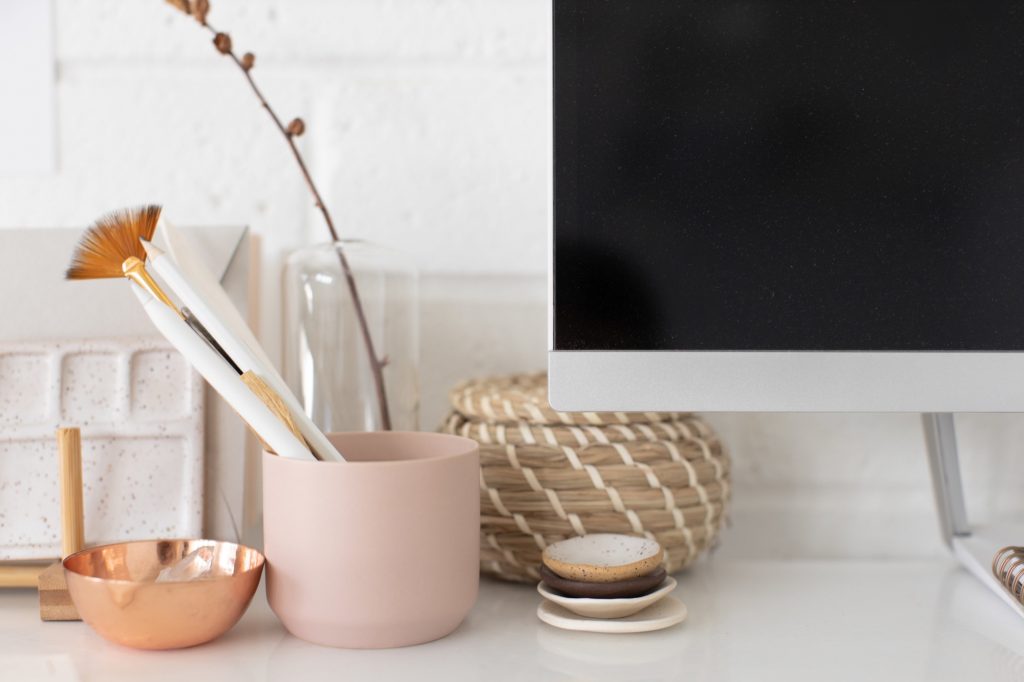
Stop Watermarking Your Wedding Photography Now! (PLUS What To Do Instead)
Table of Contents
ToggleSharing is caring!
Reading Time: 8 minutesAs a photography mentor, I see photographers watermarking their photos all the time. Generally, watermarking your wedding photography or other pro images is seen as a technique to prevent image theft.
But should you really watermark your work? will watermarking prevent image theft?
Photographers also often think that watermarking their image is a form of marketing. If potential clients see your work, they will likely see your watermark, yes? Well.. yes. But does it mean they are more likely to book you? Does using a watermark really grow your brand?
This might surprise you if you've been taught that watermarking your wedding photography is the best way to protect your work. Let's take a closer look at whether watermarking your photos really protects them, and whether it grows your business or not!

Should You Put A Watermark On Your Wedding Photography?
First – some of the most common questions that come up when deciding whether you should watermark your wedding photography.
1. Does watermarking wedding photos prevent them from being stolen?
Most photographers put their watermark in the corner of their images, right? Just pop a simple layer over the top of your image, and your work is protected.
Wrong! If someone is that determined to steal your images, do you think they will really be put off by a watermark in a corner!? They'll most likely just crop your image to exclude the watermark!
What about those big watermarks you see photographers have in the center of their images? You only have to do a quick search on google for ‘image watermark removal software' to see that there are at least ten different types of software that perform watermark removal.
If someone is going to steal your work they'll crop out the watermark, or they'll use a watermark removal tool to get rid of it.
2. Is Removing A Photographer's Watermark Illegal?
Yes, removing a photographer's watermark is illegal in some states of the US, but not throughout the world. So that means if you suspect your image has been stolen and the watermark removed, you'd most likely have to prove that the theft and removal of the watermark occurred in the parts of the US where this is illegal. That's going to be pretty tough to do, and most likely, those taking the image know this too.
Not only that, but a watermark is not copyright in itself.
3. Is A Watermark A Copyright?
A watermark is not copyright by itself. The copyright of an image is made when the photographer takes the image; at the time when the image is made. By itself, a watermark is not a copyright, it just serves as a reminder that the image does have copyright.
So the image is by definition, yours by copyright, regardless of whether or not your watermark is on it. The watermark is just a reminder of that – it isn't a ‘copyright' by itself. This means that while it can't be removed, legally, it potentially can be changed, altered, minimized, or hidden, as arguably, this isn't ‘removal'!
So really, again, a watermark isn't necessarily a deterrent to image theft.
4. Does a watermark help my images look more professional?
This is probably the real reason most photographers want to have to watermark on their photos, though it's not often admitted to.
The reality is slightly different. Think about it – would a photographer who was creating world-class images, featured in dream publications, and working for high-end clients have their watermark splashed all over their images!?
Do you see Vogue photographers with their logo in the corner of their beautiful fashion spreads?
Well… if they aren't worried about having their images stolen or looking unprofessional… why should you be?
Ultimately your brand and your work will show potential clients how professional you are way before they even get to wonder – uh, why doesn't this photographer watermark their images!?
Reality – probably less than 0.01% of clients will ever ask that question or even think about it. They're far too busy getting to know you via your website, social sites, and combing through your beautiful work to even think about that.
5. Do Professional Wedding Photographers Watermark Their Work?
It's not even something that crosses the mind of anyone outside the ‘professional' industry – and if you want to take your lead from true professionals, have a look at what they are doing.
Open the pages of any wedding or fashion magazine, and try to spot the watermark. Your argument will of course be – well, those images aren't online!
So do a search for those photographers online and see what comes up. Go to the websites of those leading the industry or their Instagram. Do you see any watermarks?
The reality is that having a watermark, far from looking professional, can actually suggest to a client that you're not confident enough in your work to let it speak for itself.
Like you need ‘proof' you are good enough.
That's the reason true professionals don't watermark their wedding photography or other work – in fact, they probably wouldn't have ever even stopped to think about it. They simply know that their work doesn't need justifying or ‘proof' that it's good enough.
6. Does Watermarking My Photos Help Market My Business?
Watermarking your wedding photography doesn't help to promote your brand as much as you might think.
The reason for this is that often, the watermark itself detracts from your image. It looks busy and can destroy the appearance and impact of your work.
It gives a brain too much information to take in – your brain immediately starts to try to ‘read' the watermark at the same time as visually processing your image i.e your brain gets to work trying to do too many things at once, instead of absorbing your image as it was meant to look.
It's usually too much of a leap to then ask your brain to think about who you are and what your brand is about at the same time – you've already told your brain that your work is overly busy and feels slightly chaotic, even on the simplest of images.
What To Do Instead Of Watermarking Your Wedding Photography
How to prevent your images from being stolen without watermarks
Well… this is SUPER controversial, but, you have to consider the PLUS side of your work being stolen.
NOT that any photographer should aim for this, and I'm not suggesting it's ever a good idea or ok for your work to be stolen, but if it does happen to you it's nice to know it's not necessarily all bad!
After all, millions and millions of musicians have their work pirated daily… and some artists believe that it helps boost their sales and gives them publicity.
Here's why you shouldn't be overly concerned with image theft if it does happen to you (and not so paranoid about it that you spoil your work by using watermarks because you feel like having your work stolen is the worst thing in the world, ever).
- If your work gets stolen, your work can often get publicity. If you then go ahead and manage to reclaim your work back, that's a lot of people who got to see your work and end up coming back to you, as potential clients!
- You can frequently charge for where your work is featured without your permission. There are specific agencies online that deal with this on your behalf, and there is a LOT of money to be reclaimed from a stolen image. Especially if the image is used on a professional site. Granted, this can sometimes happen by mistake, but most of the time sites don't want legal hassles and would much rather just pay to use the image.
- The ego-boost. If your work is worth stealing, that can sometimes mean it's damn good.
This definitely doesn't minimize the impact caused by stolen work.
It can be emotionally devastating, to see someone ripping off your work without giving you credit. Or worse, seeing them try to pass it off as their own work.
Sometimes, as mentioned, this can be due to online business owners making genuine mistakes. Maybe people aren't always aware of copyright issues and rights. This doesn't make it right, but it can be a bit less devastating and a bit easier to navigate. Frequently, a strongly worded- email can sort it out immediately. Followed by a cease and desist letter.
If not, you can use agencies such as PixTrakk to try to negotiate on your behalf, who will try to ensure you are compensated for the theft in alignment with industry payment standards.
Ok now you know there are things you can do if your work gets stolen, here's how you can prevent it from happening, without a watermark.

How To Prevent Photographs Being Stolen Without A Watermark
- Use an image tracking agency, such as the one above. This will keep track of your work across the web and alert you if your images are stolen
- Request that your clients tag you in social media when your images are used. If they refuse or use your work without doing this, a friendly reminder that you retain copyright will ensure you are tagged. This also serves the double bonus of marketing your work – without having to use watermarks!
- Disable right-click on your images to stop people from saving them for their use. Use a wordpress plugin like https://wordpress.org/plugins/no-right-click-images-plugin/
- Ensure you have copyright/ terms and conditions notices across your site.
None of these steps will prevent theft, but neither does having a watermark. If a thief is really determined to get your images, they're going to get them. Sadly there isn't much you can do to prevent it, other than not having your work online at all.
Instead, it might be a better use of your time to concentrate on making your style distinct and recognizable, so that others in the industry could spot your work if it did get stolen. But you'd probably be so busy with your current clients and a fully booked calendar if you did this you most likely wouldn't be overly concerned anyway!
Can You Promote Your Wedding Photography Without A Watermark
How to promote your photography without a watermark – well, do you want the list? The list is endless!
But what we are talking about specifically here is how to make sure your work is being recognized as yours when it is seen, the same way many photographers assume it might be when people see your watermark.
The idea with a watermark is that as many people as possible with see your work and associate it with your brand.
This article shows how 83% of consumers value peer recommendations and reviews, so getting your work shared by your clients is a powerful strategy for business growth.
How To Promote Your Wedding Photography Without A Watermark
- Ensure your clients tag you everywhere the images are shared and ensure that they pass on the information to others
- Encourage clients and guests to share your work straight from your online gallery (this should contain your info)
- Develop your own unique style that becomes recognizable as ‘yours'. I'm pretty sure I could spot an Elizabeth Messina image from ten miles away 🙂
- Use a branded hashtag for your work and request your clients and their guests use the hashtag
- Use social media buttons under all of your blog posts. If your clients share this online, it will come directly from your site and the link back will go straight to you
- Encourage everyone to actively share the images with their guests and family and tell them it's ok for their family to actively share too (with credits and hashtags)
- Create a contest. For example, a prize draw where everyone has to share their image on their social media pages.
These ideas should get your work standing out and shared, without having to splash a watermark everywhere.
What If I Still Want To Use A Watermark?
You can go right ahead and get a beautiful watermark for your images from Etsy. Just type ‘photographer watermark' into the search bar. These will give you some beautiful watermarks that you can use in your work.
There are ways to make using watermarks more discreet. You could ‘colour match' them to your image background, so they blend in more than just a standard black or white outline.
You can use them on a slim and non-obtrusive white border (use blogstomp to quickly add borders and watermarks to all of your images).
Ultimately the choice of whether to watermark your wedding photography is yours. But this post hopefully will help you decide!
What do you think? We'd love your thoughts on watermarking your wedding photography! Leave your thoughts below.
A post by Charlie
Most Popular Posts:
Sharing is caring!
PLEASE COMMENT BELOW